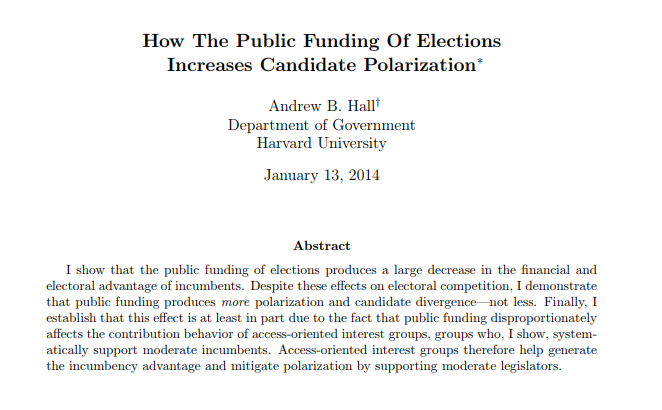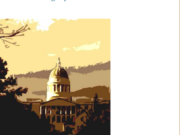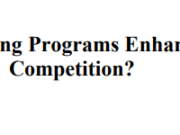In this article, the author shows that the public funding of elections produces a large decrease in the financial and electoral advantage of incumbents. Despite these effects on electoral competition, the study demonstrates that public funding produces more polarization and candidate divergence – not less. Finally, the article establishes that this effect is at least in part due to the fact that public funding disproportionately a ffects the contribution behavior of access-oriented interest groups, groups who, the study shows, systematically support moderate incumbents. Access-oriented interest groups therefore help generate the incumbency advantage and mitigate polarization by supporting moderate legislators.














